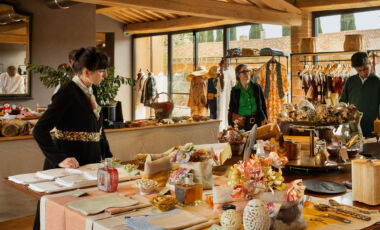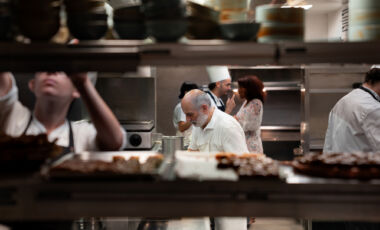Celebrating the land that hosts us with the culture that sustains us
A day of celebration becoming tradition: Reschio honours the bond between past and present through its Household Habits – ancient crafts still alive and essential here
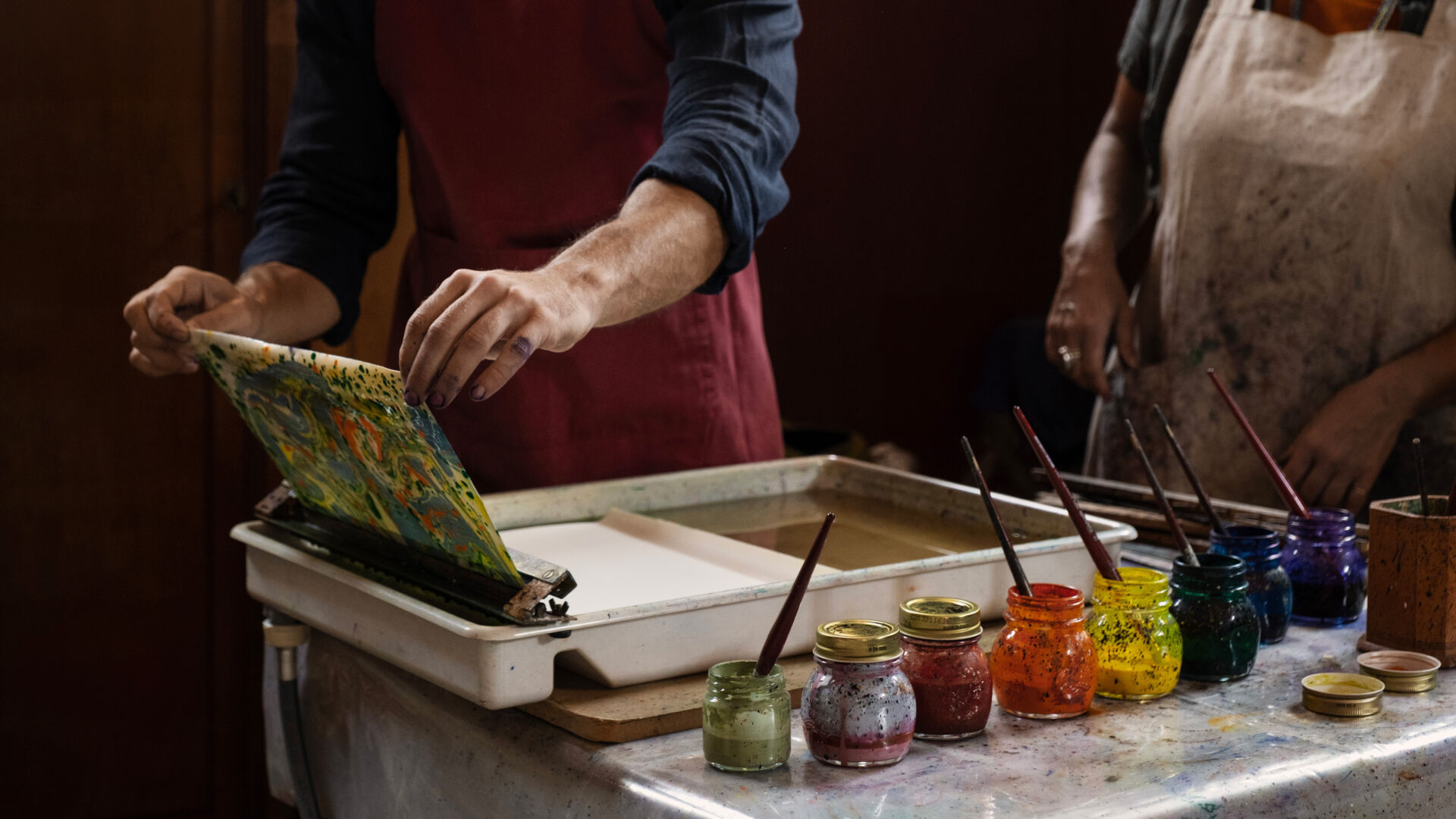
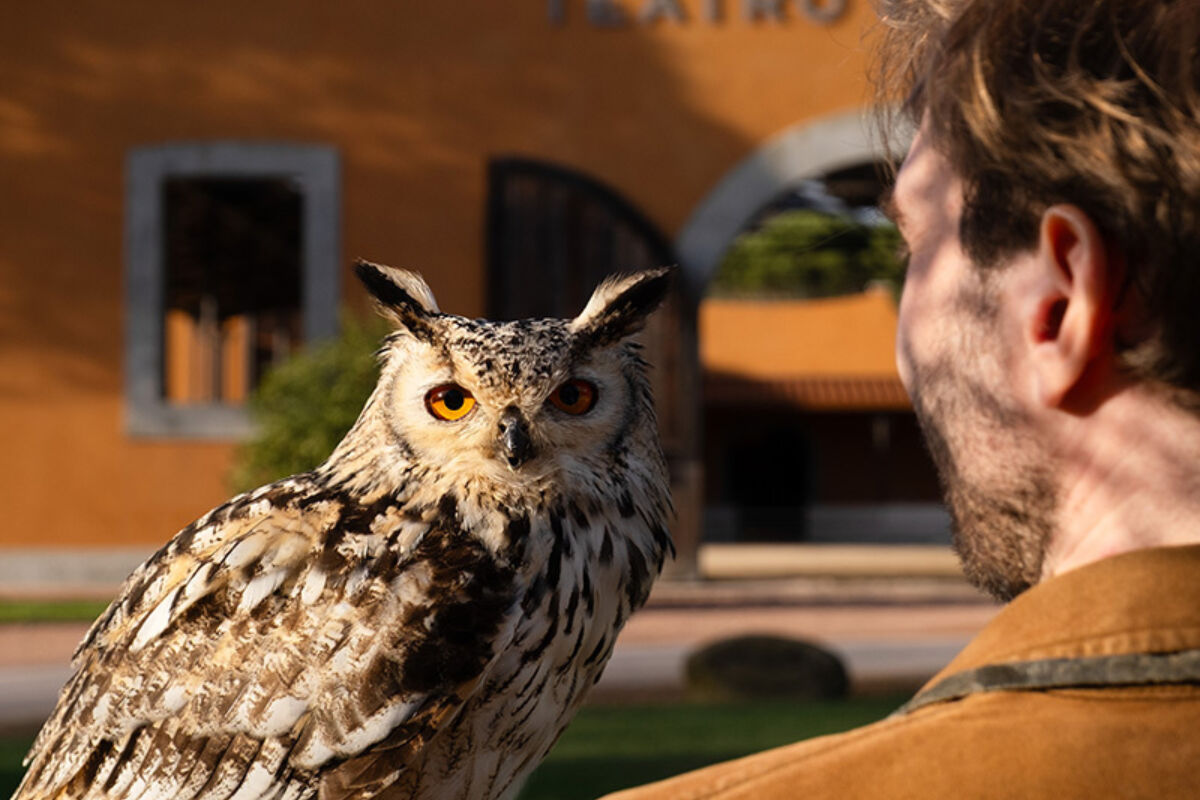
At Reschio, spring arrives quietly, yet it never goes unnoticed. It announces itself in the quiver of fresh grass, in the light that returns to dance upon stone, to shimmer across the surface of the lakes, in the birdsong that stirs the woods back to life. This year, for the very first time, its return was marked by a celebration: the Spring Affair, a gathering born as spontaneously as the season it seeks to honour.
On 29 March, beneath a clear sky that hinted at summer, the doors of the Old Stables opened to welcome local master artisans — rare custodians of precious knowledge, ancient crafts that at Reschio we protect and pass on under the name Household Habits.
Household Habits are those gestures and skills that once shaped daily life in the great houses — now, for many, fading echoes of a bygone world, too often cast aside by the pace of modern life. But here at Reschio, it is modernity that cannot fully erase the past — a past that continues to breathe within the present, like sap rising from roots too deep to sever.
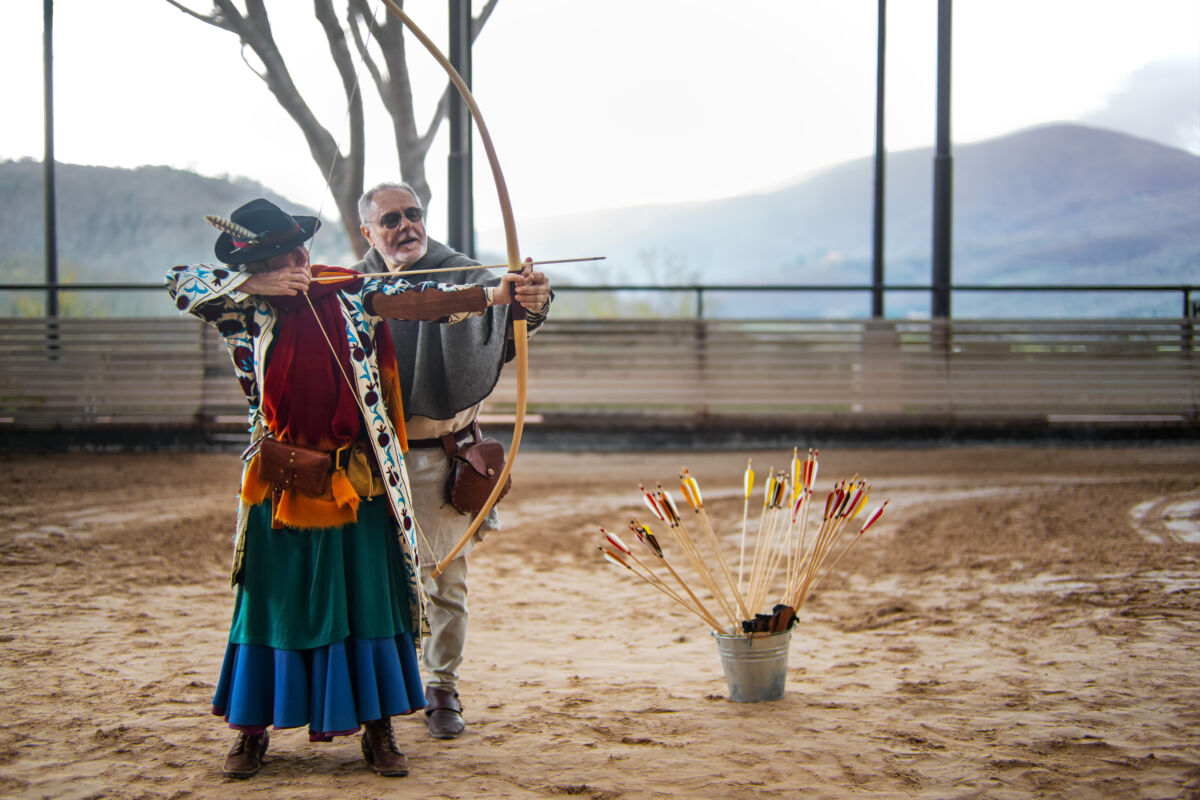
The Spring Affair was a celebration of the love we bear for the culture that gave us life, and upon which we laid our foundations. Not a conventional fair, but an encounter — a dialogue between past and present, between seasoned hands and wide-eyed wonder. Guests and friends rediscovered the slow, essential gestures that once sustained the home economy, finding in them meanings far beyond utility. Through the work of their hands, they uncovered a new way to understand and experience the world. Participants were not merely spectators — they were invited to try these practices themselves, guided with care and patience by the masters. It is an opportunity that lives on throughout the year for those staying at Reschio, where each day offers a workshop in tune with the land and the philosophy we quietly uphold.
Thus, among the tables set up in the Old Stables, some shaped clay on the wheel, turning raw earth into objects of everyday beauty; others wove on ancient looms or revived faded fabrics with natural dyes extracted from wild herbs growing in the estate’s meadows. Patient hands embroidered tales in thread, while others gave voice to their stories through calligraphy, returning writing to its sacred origin — made of delicate, meditative strokes. Nearby, baskets were woven with movements refined over centuries, echoing the way birds craft their nests. Paper was marbled — a craft with Eastern roots, brought to Florence in the Middle Ages — capable of transferring colour to sheet as if by magic, yielding swirling, vibrant patterns.

A little further on, in the Equestrian Theatre, a steady whistling sound drew the attention of passers-by. Florentine bow masters taught the art of archery, using longbows fashioned by hand from reedwood trunks — an exercise in focus, balance and inner stillness. Every so often, a proud cry rang from the skies: the falconer’s birds, released into the air, circled the castle with graceful flight. Adults and children paused, eyes lifted, waiting for the bird to descend and return to the gloved hand — a moment both magnetic and solemn, sealing the bond between human and animal, founded on mutual trust rather than dominion.
The Spring Affair was all this: a moment to slow down, to rediscover, to share. A celebration not of grandeur, but of depth — steeped in Reschio’s vision: to live in harmony with time, with nature, and with beauty. A beauty we strive — urgently, and with quiet resolve — to preserve through attention, care, and respect for what came before us and continues to sustain us.
This was only the first edition of the Spring Affair, yet it already feels destined to become a tradition — a rite returning with the seasons, reminding us to listen to the echo that has long resounded across these hills.




